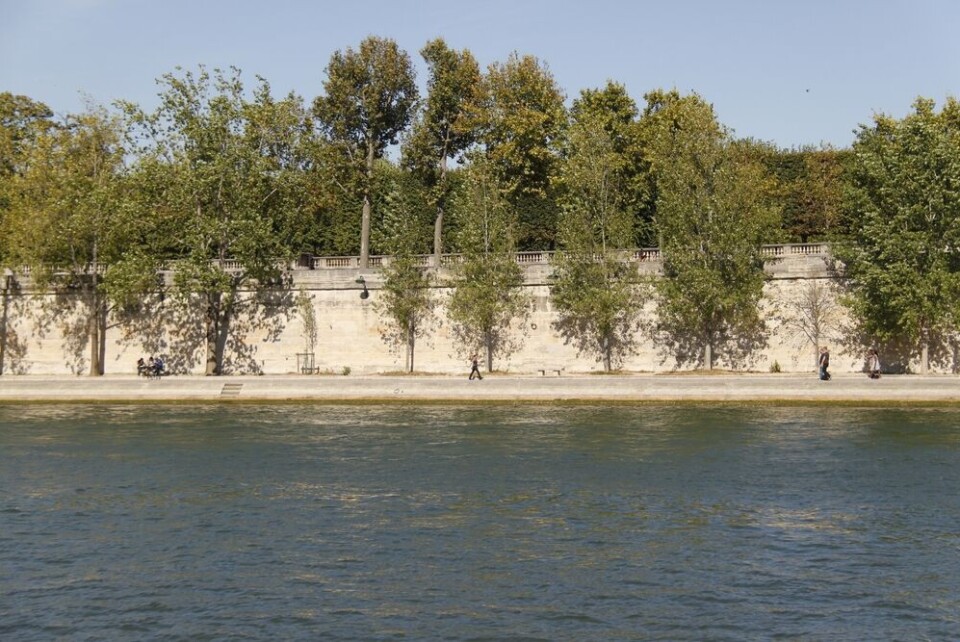-
The curious case of Good Friday: Why only some parts of France get the day off
Three French departments benefit from two extra public holidays
-
How long does it take to sell property in different areas of France? New study
Many major cities are showing signs of recovery when it comes to supply, demand, prices, and time to sell
-
Map: Car insurance costs rise in France - see the average in your region
Multiple studies show that costs are rising by around 5% year-on-year, with major differences by region and vehicle model
Second sewage leak cancelled another try at Olympic trials in Seine
Investigations are underway into how this occurred - and how to stop it happening again ahead of the 2024 Paris Games

Swimming triathlon trials ahead of the Paris 2024 Olympics and Paralympics had to be cancelled again this weekend - with the reason now revealed as a sewer valve leak into the River Seine.
The pollution was judged to be too high for the swimming events to take place. This included the swimming events in para-triathlons, and mixed triathlon relay.
The Paris Mairie blamed the incident on a ‘valve malfunction’ in the capital’s sewage system; namely an inadequately closed sewer valve on the Tolbiac bridge. This leak is considered to have caused the water quality to deteriorate lower than the bacteriological thresholds allowed for safe swimming.
Investigations are underway into how the issue occurred, and how to stop it happening again ahead of the 2024 Games.
In a statement, the mairie said: “Investigations are continuing in order to understand the sequence of events and determine the measures to be taken to guarantee perfect water quality for the 2024 events.”
Pierre Rabadan, mayoral deputy for the Olympics and Sport, said: “It's regrettable, but it's a situation that we'll be able to understand better in the future.” He said he is still waiting for the exact details of how the issue occurred.
Yet, he admitted that there was an “absence of information” about the poor analysis results of the water, and said that it had registered an above-threshold level of Escherichia Coli (E.coli) bacteria.
This had been worsened by severe storms in the city earlier this month, he said. Less than two weeks earlier, intense storms and high rainfall in Ile-de-France led to the cancellation of another pre-Olympic swimming event test, this time the Open Water Tour swimming, which had been set to take place near the Alexandre-III bridge.
Read more: Fears over safety at Paris Olympics after Seine swimming race scrapped
High rainfall can cause sewage outlets to overflow into the Seine.
Several projects are currently underway in a bid to reduce the risk of the same issue occurring during the Games. These include the still-under-construction Austerlitz reservoir, which will have a rainwater storage capacity of 50,000m3.
However, the Olympic organising committee has repeatedly said that “there is no plan B” when it comes to many of the swimming events scheduled to take place in the Seine.
The ‘acceptable norm’ thresholds are set by the international federation, World Aquatics, in association with the Fédération française de natation (FFN).
In a statement after the cancellation of the open water swimming earlier this month, the World Aquatics president Husain Al-Musallam said the association was “disappointed that the quality of water has caused cancellations…” but that the “health of athletes must always be our first priority”.
Swimming in the Seine has been banned since 1923, although returning the river to a swimmable condition has often been part of successive mayor and president pledges (although none have yet succeeded).
Current Mayor Anne Hidalgo pledged to make the river safe for swimming as one of her election pledges, and says it will be part of France’s ‘Olympic legacy’.
Plans are already underway for the years after the 2024 Olympics. In the summer of 2025 a number of safe swimming spots are scheduled to open along the river, both in Paris and in the surrounding departments.
Read also
‘Swimming in the Seine will be fitting legacy for Paris Olympics’
What sports can the public access for free at the Paris 2024 Olympics?
This is what the Paris 2024 Olympic torch will look like
























